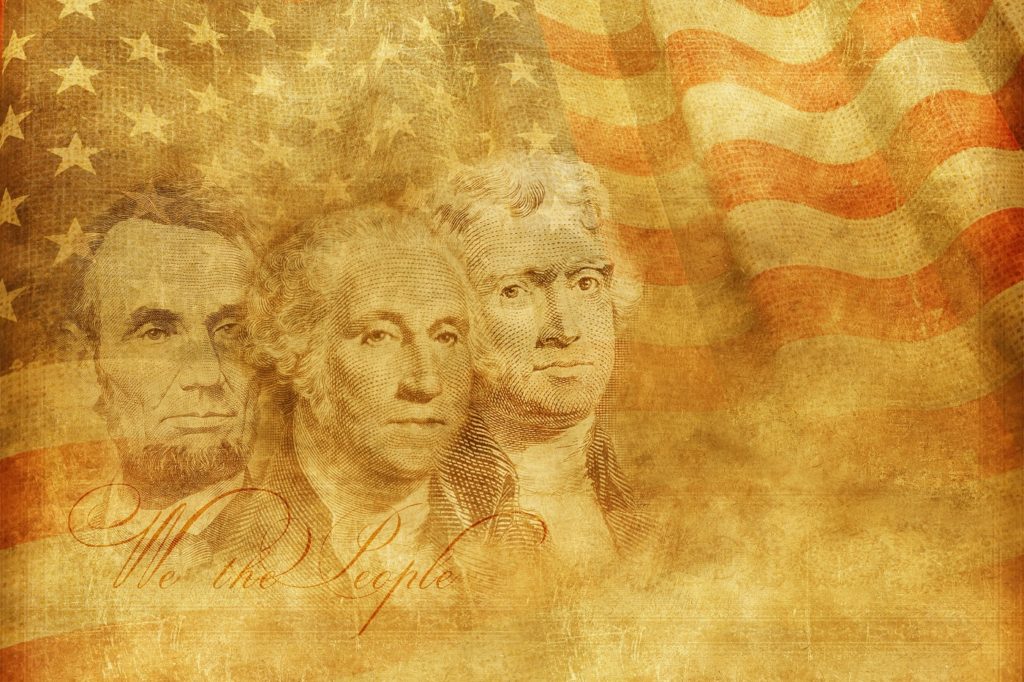Charles Kesler, editor of the Claremont Review of Books, has diagnosed the American regime’s present ills in his new book, The Crisis of the Two Constitutions. There, he defends well an interpretation of the American founding that pushes back against historicists and progressives.
Kesler first presents what he calls “The Founders’ Constitution.” Relying heavily on The Federalist Papers and the Declaration of Independence, and citing the moral and political leadership of Washington and Lincoln, Kesler argues that America’s founding was not merely a product of modern political philosophy. It went deeper than Locke and Rousseau. The founders’ liberalism and tolerance served the ends of republicanism, not the other way around.
According to Kesler, the founders attempted to ground the American order on truth and natural right. The opening lines of the Declaration are not intended to express historically contingent values, but to assert truth. The founders’ project is only intelligible teleologically: the Constitution is an attempt at the “best regime,” and citizens must strive to be worthy of it.
The second chunk of the book focuses on “The Progressives’ Constitution.” If Washington and Lincoln are the heroes in this tale, Woodrow Wilson is its villain. According to him, we ought to eschew claims of natural right and instead give political leaders freedom to seek the good as identified by the spirit of the age. Insofar as the Founders’ Constitution weighs down statesmen attempting to ride the Zeitgeist, says the Wilsonian Progressive, it ought to be jettisoned.
Start your day with Public Discourse
Sign up and get our daily essays sent straight to your inbox.Kesler argues that America’s founding was not merely a product of modern political philosophy. It went deeper than Locke and Rousseau. The founders’ liberalism and tolerance served the ends of republicanism, not the other way around.
The consequences of Wilson’s approach are apparent. We can’t expect our state-run educational institutions to promote the founders’ vision if that vision is but one value system among other equally good ones. We can’t restrict immigration to those who accept certain beliefs if those beliefs are mere products of history. On the flipside, the statesman attuned to history’s movement must be free to act unencumbered by anachronistic checks and balances—hence the rise of the administrative state, which can create new programs and regulations without the hassle of crafting new legislation and getting it passed. Relativistic historicism, Kesler argues, infected even the presidencies of Ronald Reagan and George W. Bush.
Towards the book’s end, Kesler critiques various elements of modern conservativism. The Burkean approach lacks solid grounding on natural right. The Hayekian approach ignores the moral, social, and religious preconditions of republican self-government. And hoping that a return to “Anglo-Protestantism” might save the country amounts to little unless “Anglo-Protestantism” and this country are worth saving.
Crisis of the Two Constitutions gives conservatives a clear picture of the problem, but it does not provide a solution. Kesler does not attempt to establish as true the premises upon which the founders built this country. Nor does he explain how to compete with the progressives’ vision of the Constitution, which promises equality, economic security, environmental protection, and the liberty to choose how to live our lives. He suggests that eventually economic realities will catch up to progressivism, but (it seems to me) that has never stopped progressives before. And waiting for an economic collapse does not seem to be good strategy.
Yet Kesler clearly offers a straightforward approach to the Constitution, a pointed (though always measured) characterization of progressivism, and an honest assessment of American conservatism. It’s not a terribly optimistic picture, to be sure. But optimism has never been the conservative’s strong suit. Kesler’s book can serve as a starting point for those who wish to present a vision of what America could (and, according to its founding, should) be. Lincoln said it best: the founders established a government of the people, by the people, and for the people. We should not let it perish from the earth.














